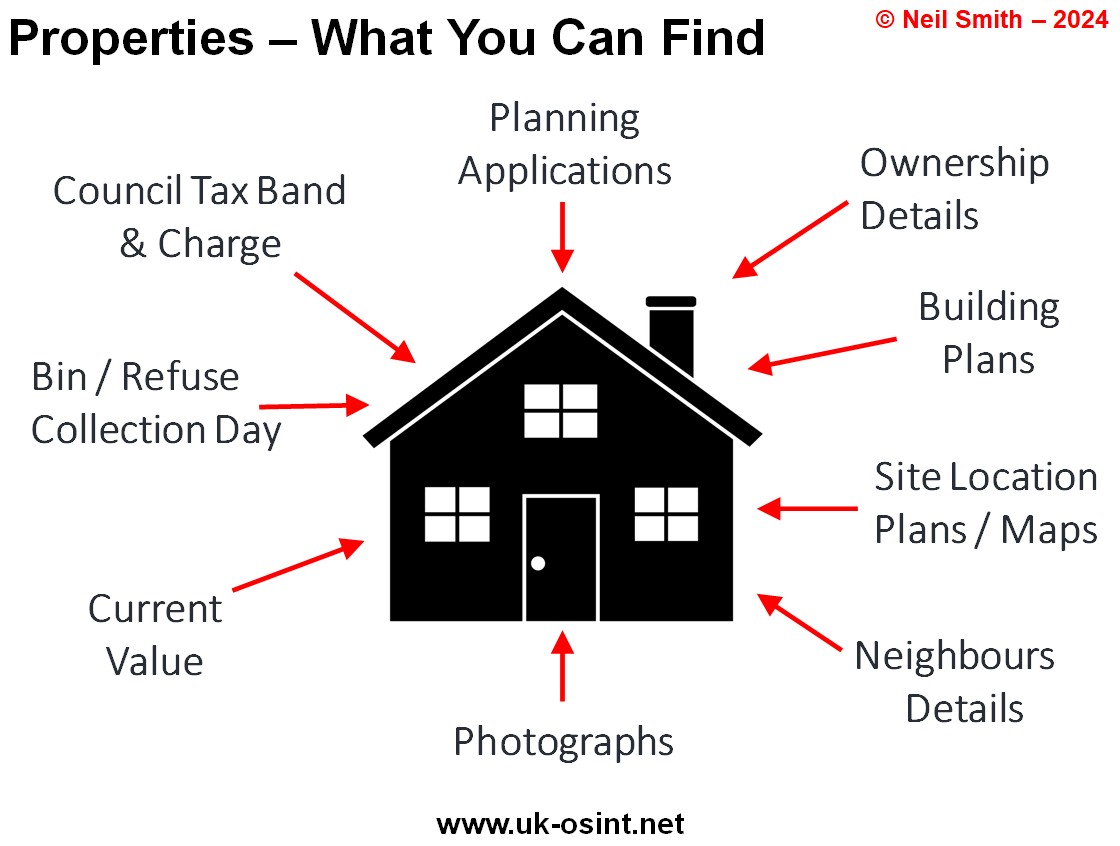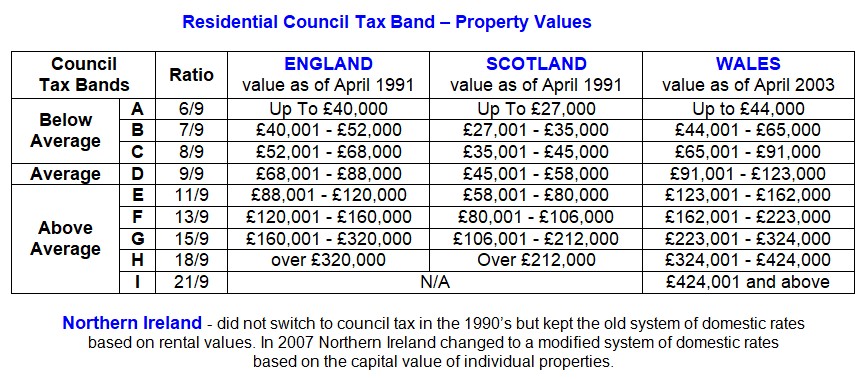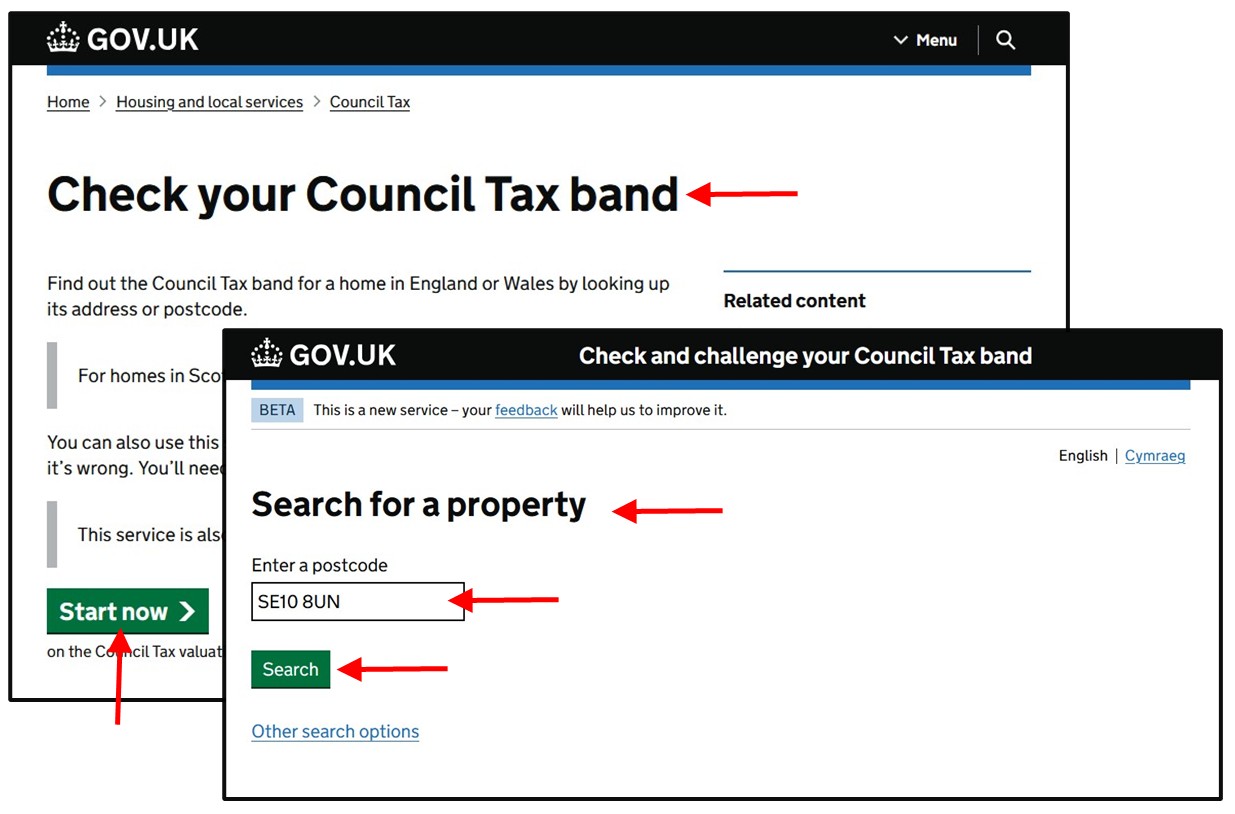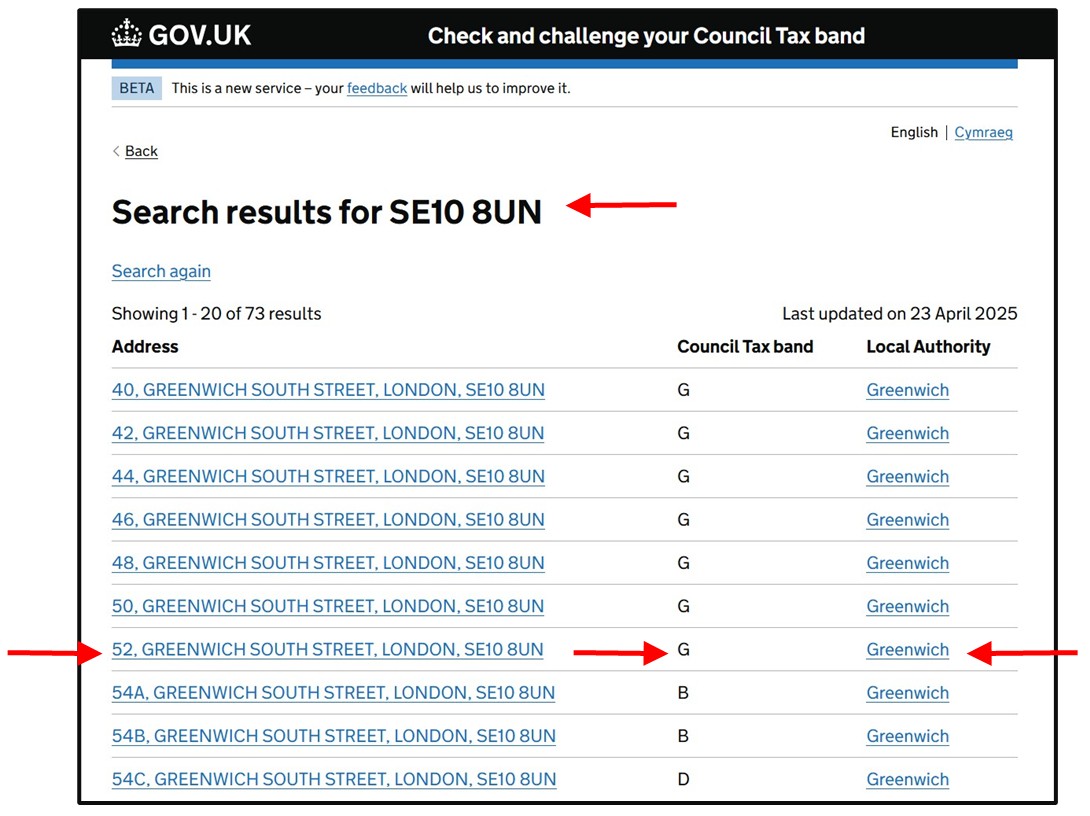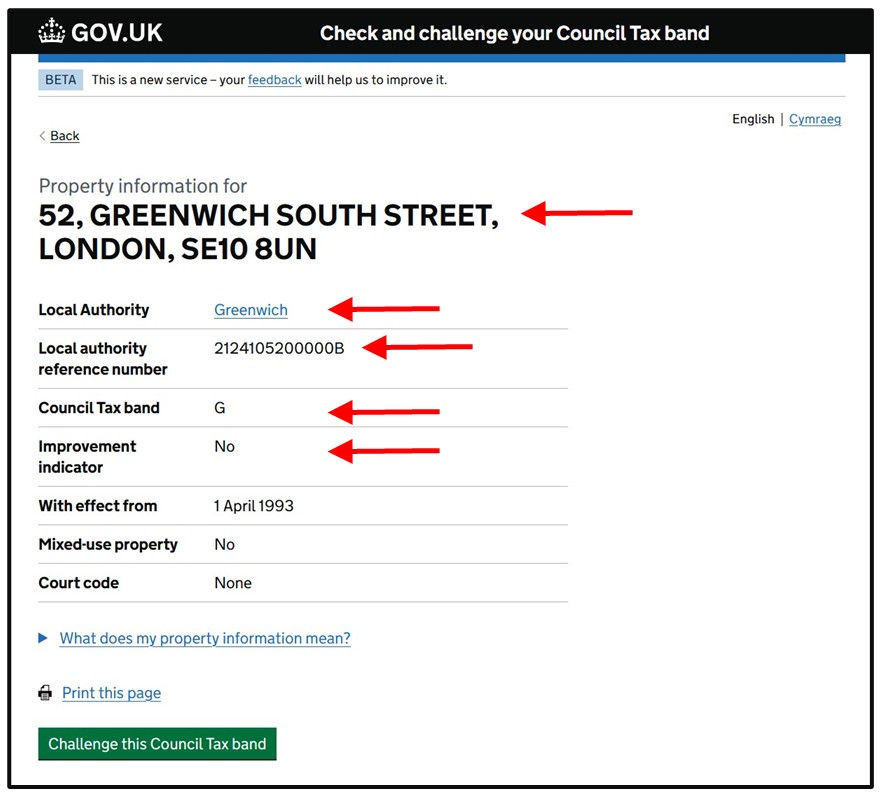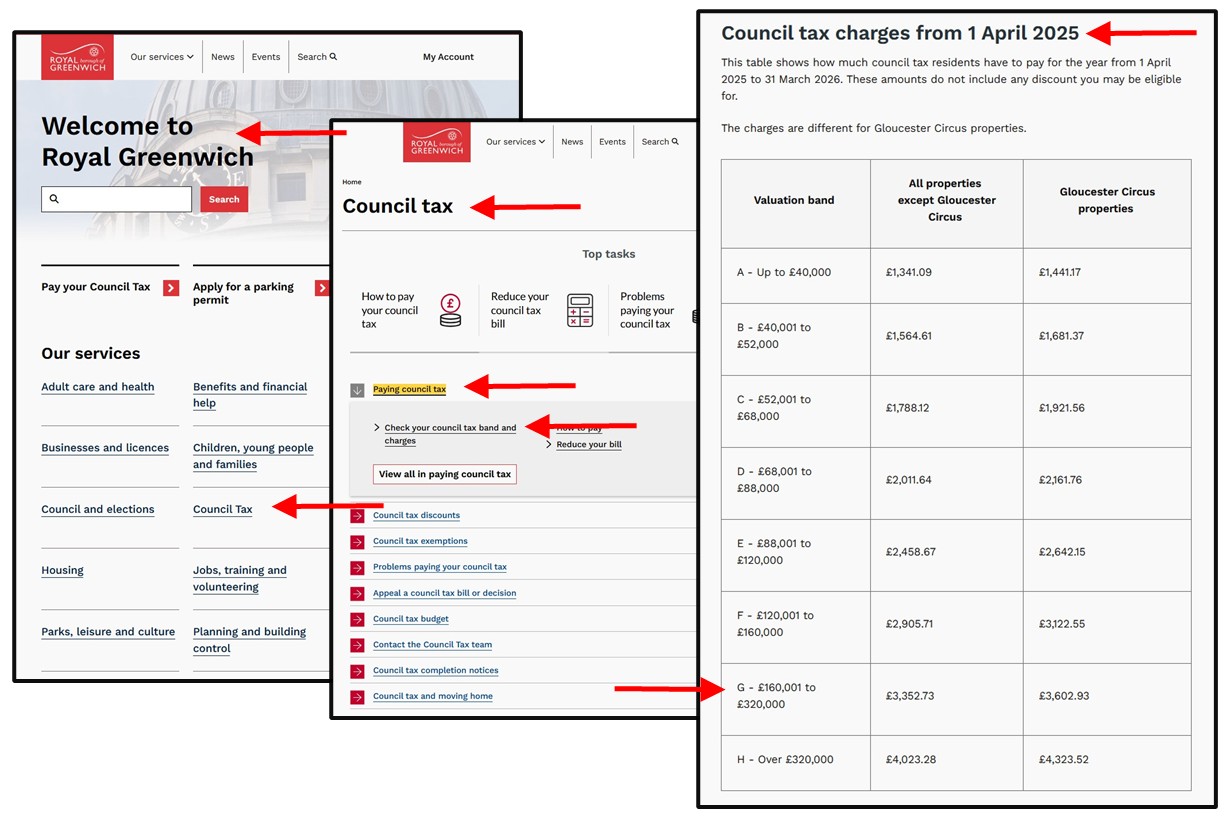
Please Donate To Help Us Run This Site
UK Property - Residential Council Tax
(This page was last updated on the 29/04/2025)
Council Tax
Business Rates
Bin Day
Planning Applications
Estate Agent Type Sites
Land Registry
Streetview Type Images
Other Useful Details
Every property in the UK pays a local tax, be that Council Tax for Residential properties or Business Rates for Commercial Properties. It should be noted that Northern Ireland did not switch to Council Tax in the 1990's but has retained the old system of Domestic Rates based on rental values and in 2007 it changed to a modified system of Domestic Rates based on the capital value of individual properties.
UK Residential Council Tax bands properties between A - H for England & Scotland and A - I for Wales, with A being the cheapest properties, whilst H & I are the most expensive properties. Band D is the average property for the UK.
Consider your own circumstance, your properties banding, does it match your income and lifestyle. Then when you are researching someone and their address, does their job, income and lifestyle match the properties banding, if it doesn't, why could that be.
So, as an example, using the known address of the former Prime Minister Liz Truss, of 52 Greenwich South Street, Greenwich, London, SE10 8UN, you can search the Post Code on the website of the Valuation Office, who cover Residenital Properties in England & Wales, for Council Tax, or at counciltaxrates.info & mycounciltax.org.uk. There are other sites for properties in Scotland and Northern Ireland, both of which supply similar information to that of the Valuation Office.
Always view the property along with the others in the street, to see how it compares. Is it the best house in the street? or the worst?
Then select the property of interest, as this may reveal a previous Tax Banding or a Property Improvement Indicator, which is an indication that the property has been improved and will be re-banded upwards when the current owner sells the property. This generally indicates that the property has been substantially improved, which would normally require some level of planning application and approval and that the person who improved the property still owns it.
Also there is a link to the relevant local council / authority with these details. Every local council / authority in the UK has its own website and although they are all slightly different, most will highlight on its front page the most popular pages and have an A - Z search function somewhere easy to find, so it should be easy to locate the Council Tax section, and to see exactly how much each council tax band within that area must pay, which might be useful information.
This information is all publicly available and is used here only as a training aide, to demonstrate the type of additional information which can be freely located about an individual and their property.


